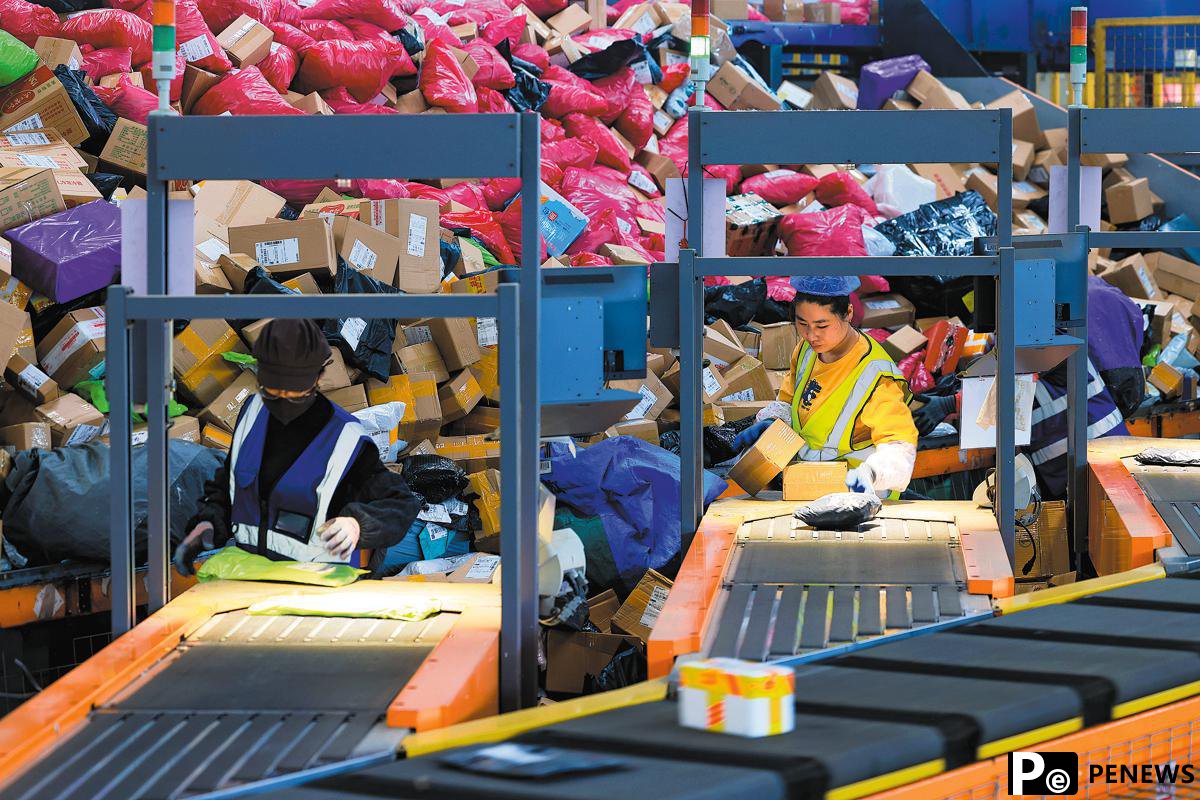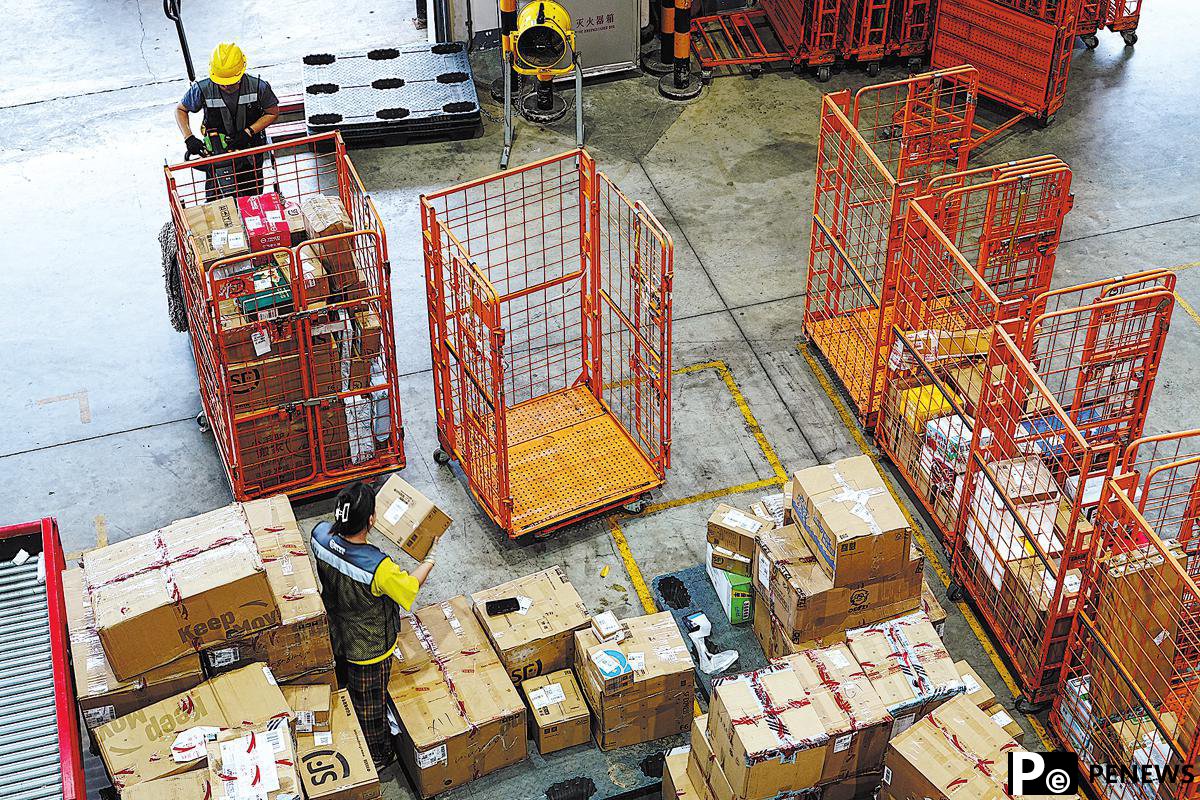Home>>
China continues push for greener packagingBy Li Shangyi (China Daily) 14:58, May 27, 2025
Editor's note: China Daily is publishing a series illustrating the country's efforts to achieve its carbon peak and carbon neutrality goals.

Piles of packages are processed at a distribution center in Zaozhuang, Shandong province, on May 1. (Wang Longfei/Xinhua)
With express delivery ubiquitous in China, where almost 175 billion packages were delivered last year, the public and private sectors are taking steps to address the reduction of packaging waste and forge a more sustainable way forward for the rapidly growing industry.
Last year, express deliveries in China reached 174.5 billion, the most for any country in the world for the 11th straight year, and a rise of 21 percent year-on-year.
According to a report released by the State Post Bureau, in 2022 alone, approximately 9.92 billion packaging boxes and about 16.98 billion meters of tape were consumed in China's express delivery sector.
This staggering volume has raised growing concerns about the environmental impact of packaging waste and excessive material consumption.
As of June 1, the State Council will require express delivery companies to promote greener, reduced and reusable express packaging, according to an updated regulation on the industry. The update stresses that eco-friendly, biodegradable and reusable materials are used in express delivery packaging, while avoiding excessive and wasteful packaging.
In recent years, major express delivery companies in China and postal authorities have made efforts to reduce material use, recycle packaging materials and develop degradable materials, however, more action is still needed.

Automatic handcarts are being used to transport packages by SF Express in a logistics park in Haikou, Hainan province, on May 15. (Li Shangyi/China Daily)
Reduced materials
Express delivery companies typically repackage goods using their own branded boxes, however, more recently, some shipments are being made using original boxes to save on excess packaging.
Gao Jiaqi, who is in charge of JDL Express' intelligent logistics park in Hangzhou, Zhejiang province, said direct shipments are becoming more commonplace.
"When goods arrive at our warehouses from the manufacturers, we ship them directly to consumers without any repackaging," Gao said. JDL is the logistics branch of the e-commerce platform JD.
"Couriers only need to put an express waybill on the original package for goods suitable for direct shipments, such as packed tissues and diapers, and small electronic devices in individual packages," Gao said.
In total, direct shipment helped JDL reduce over 1 billion repackages last year.
ZTO Express, another major express delivery company in China, has been promoting the same practice. "Currently, all warehouses prioritize shipping goods in their original packaging from merchants," said Xu Yonggui, head of the marketing and branding department of ZTO Cloud Warehouse Supply Technology.
While direct shipment without repackaging reduces costs and waste, the product categories suitable for the shipment remain limited. "Smartphones and beauty products cannot be shipped directly in their original packaging," said Xu.
Since 2022, nearly 300 of ZTO's warehouses nationwide have used an intelligent system to recommend the most efficient repackaging.
"Suitable packaging avoids over-packaging, lowers costs and improves consumers' shopping experience," said Bian Yanjue, director of the customer service department of Beingmate, a corporate client of ZTO.
Express delivery companies have also been exploring ways to reduce material usage in packaging.
In 2023, JDL said it cut its use of cardboard boxes from between 5 to 25 percent by changing their design.
Last year, over 860 million of these upgraded boxes were used, reducing 12,164 metric tons of carbon emissions, the company said.
JDL said it had also reduced plastic in its express bags by 20 percent.
"To reduce plastic tape usage, we no longer use the traditional cross-wrapping method," Xu said. "Instead, we now secure packages using one to three strips of tape, depending on the box size." These more efficient taping methods have also been widely adopted across the industry.
Recycle and reuse
Despite more efficient material use, single-use packaging still generates a significant amount of waste. To extend the life cycle of boxes, express delivery companies and postal services have introduced reusable circulation boxes designed for multiple uses.
Reusable plastic boxes are circulating in logistics stations of JDL Express, SF Express and Deppon Express for inter-station transportation, saving single-use packaging.
In Haikou, Hainan province, reusable boxes are being used for the delivery of resident ID cards via a collaboration between the local post office and the province's ID card production center.








